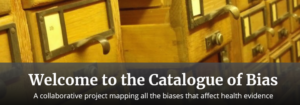In November 2019, the Royal College of Physicians published a document entitled 'Benefiting from the ‘research effect’: The case for trusts supporting clinicians to become more research active and innovative', suggesting a number of ways that NHS Trusts can support staff to become more research active, and how this will benefit both patients and staff.
It showed that involvement by staff in research can improve their morale, and can help the recruitment and retention of staff. One finding is that staff lack protected time to do research, and this reports suggests that this should be a key priority. Two-thirds of RCP members surveyed said they want to do more research.
Patient outcomes in Trusts that are more research-active are better, and CQC inspections include research activity in their remit. In addition, patients feel more valued by being involved in research, learn more about their treatment, and gain a sense of pride in helping others.
Research tends to be concentrated in certain areas such as the South East of England, or large urban areas. Smaller and rural hospitals must also be encouraged to become more research active and benefit from the research effect.
The report makes clear that research is more than clinical trials, and can include anything that provides new evidence, including robust service evaluation.
How do Shrewsbury and Telford Health Libraries support research?
The report suggests that it is it is ‘increasingly important to ensure that the clinical workforce is equipped to appraise and generate evidence’ (p. 11). We support the appraisal of evidence with the provision of critical appraisal training, which can be provided to groups of staff. We also signpost to resources such as the CASP critical appraisal checklists, or to PRISMA guidelines for systematic reviews. Our Knowledge Navigator tool provides advice on how to search for different types of research such as randomised controlled trials, observational studies and qualitative research.
Our librarians can also assist in creating systematic reviews, by designing and carrying out search strategies, providing advice on databases, or advising on where to publish. Recently, a systematic review was published that involved one our librarians, who was listed as a co-author. We can also carry out literature searches for other research.
We also attend the SaTH Research & Innovation committee, to advocate for library services and also gain a better understanding of the local issues. As part of our work with Research & Innovation, we manage a staff publications database, to track and promote local research publications, and these include conference abstracts, poster presentations and innovations such as those published on Fab NHS Stuff. Staff of SaTH can submit details of their own publications to the collection.
For 2020, we're planning to introduce a course for nurses and midwives called 'Research Ready' that will include training on how to find and appraise the research literature, and the opportunity to discuss and reflect on a journal article as a way of gaining hours for revalidation. We're also looking to run some timetabled training on critical appraisal that will include a look at how to interpret the statistics in a research paper. Keep an eye out for further details in the New Year!

